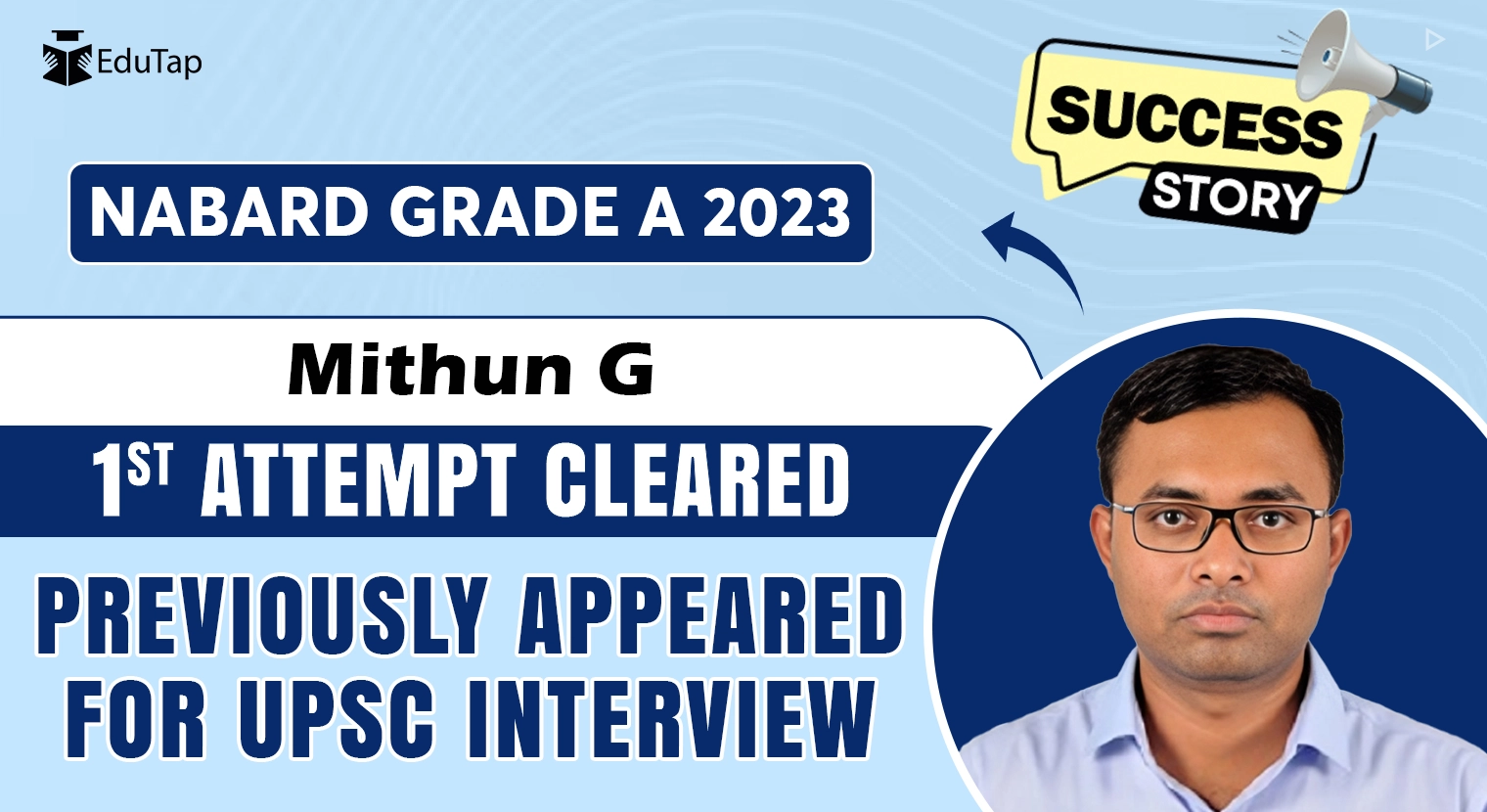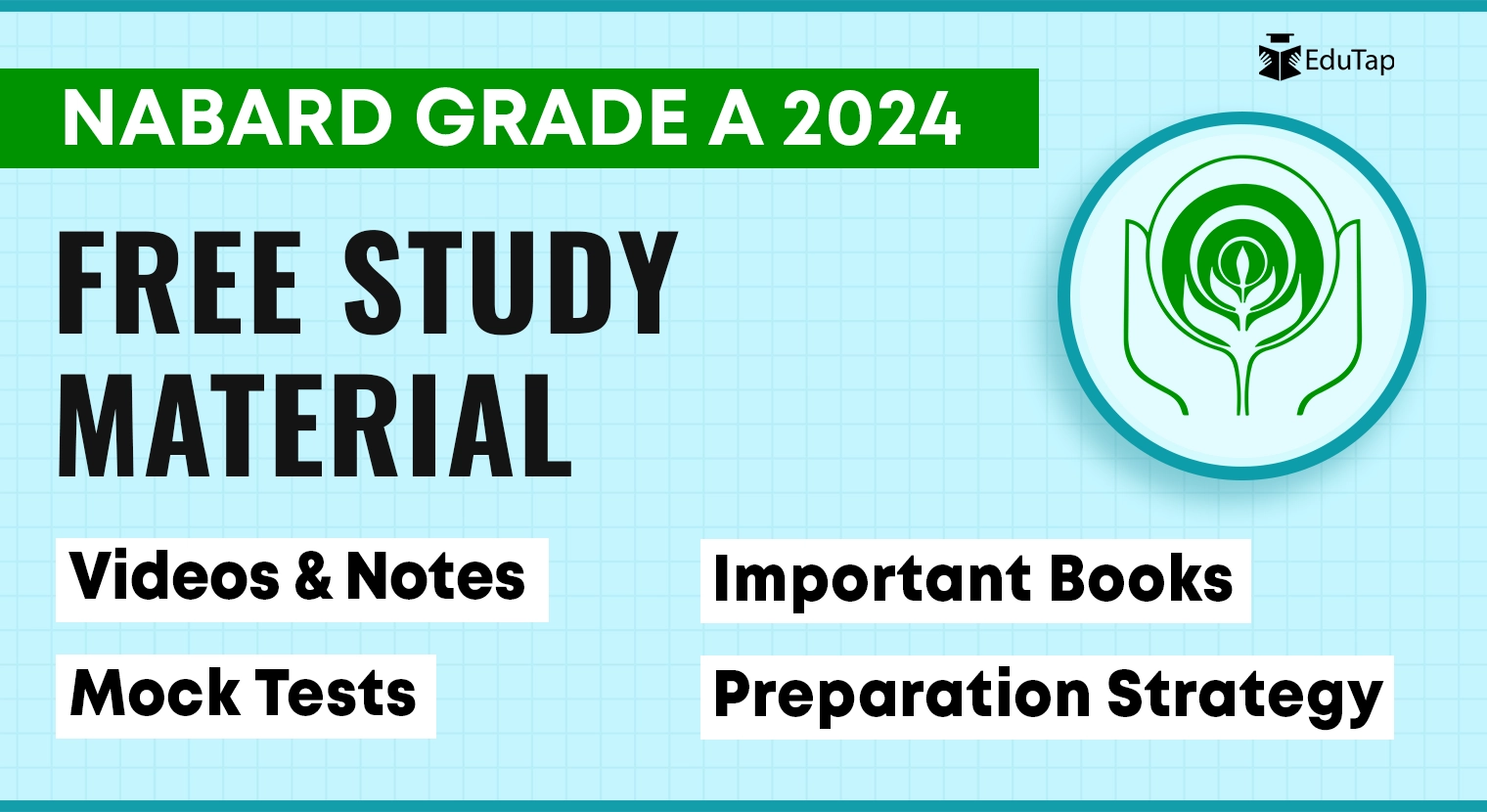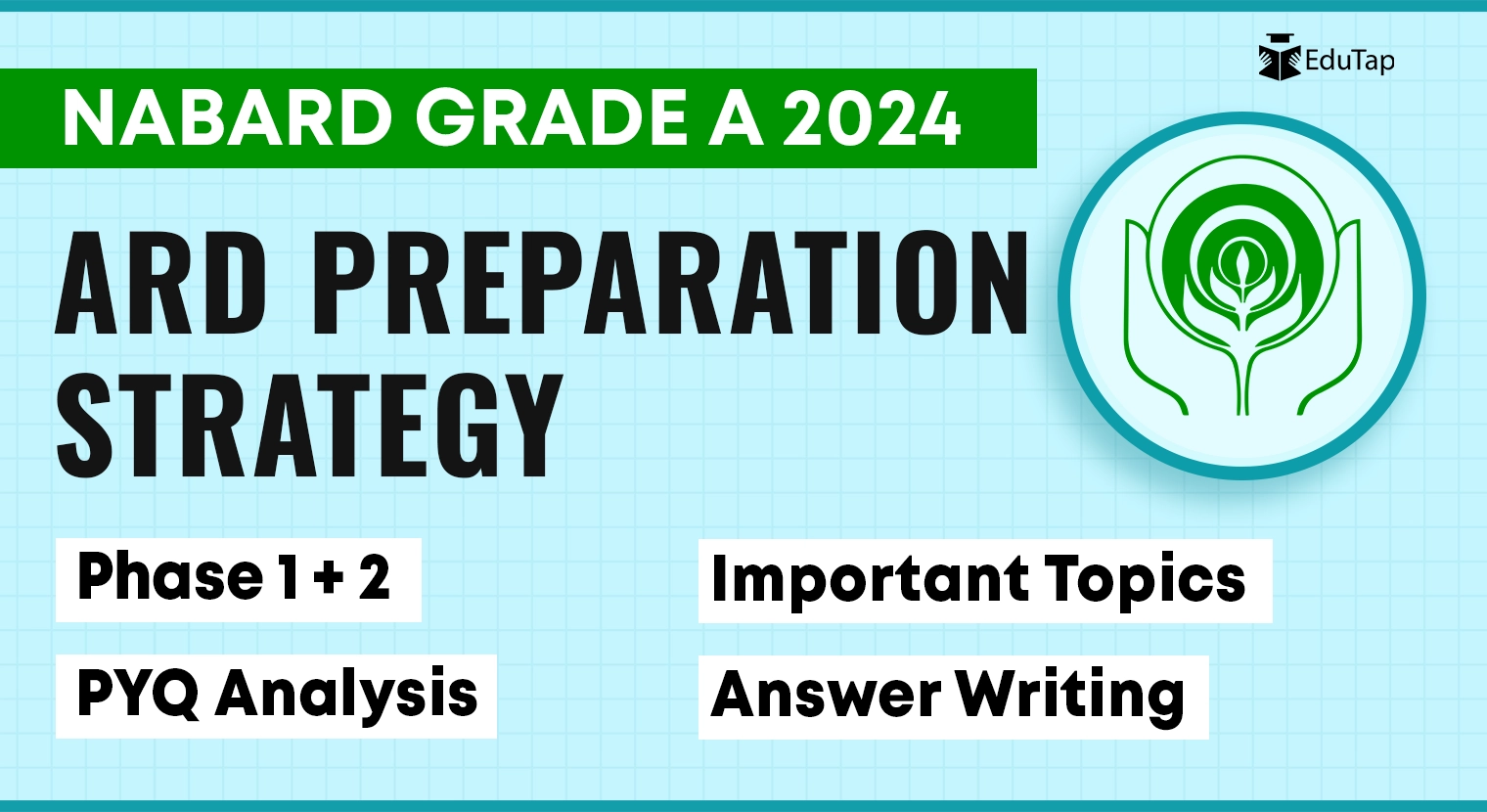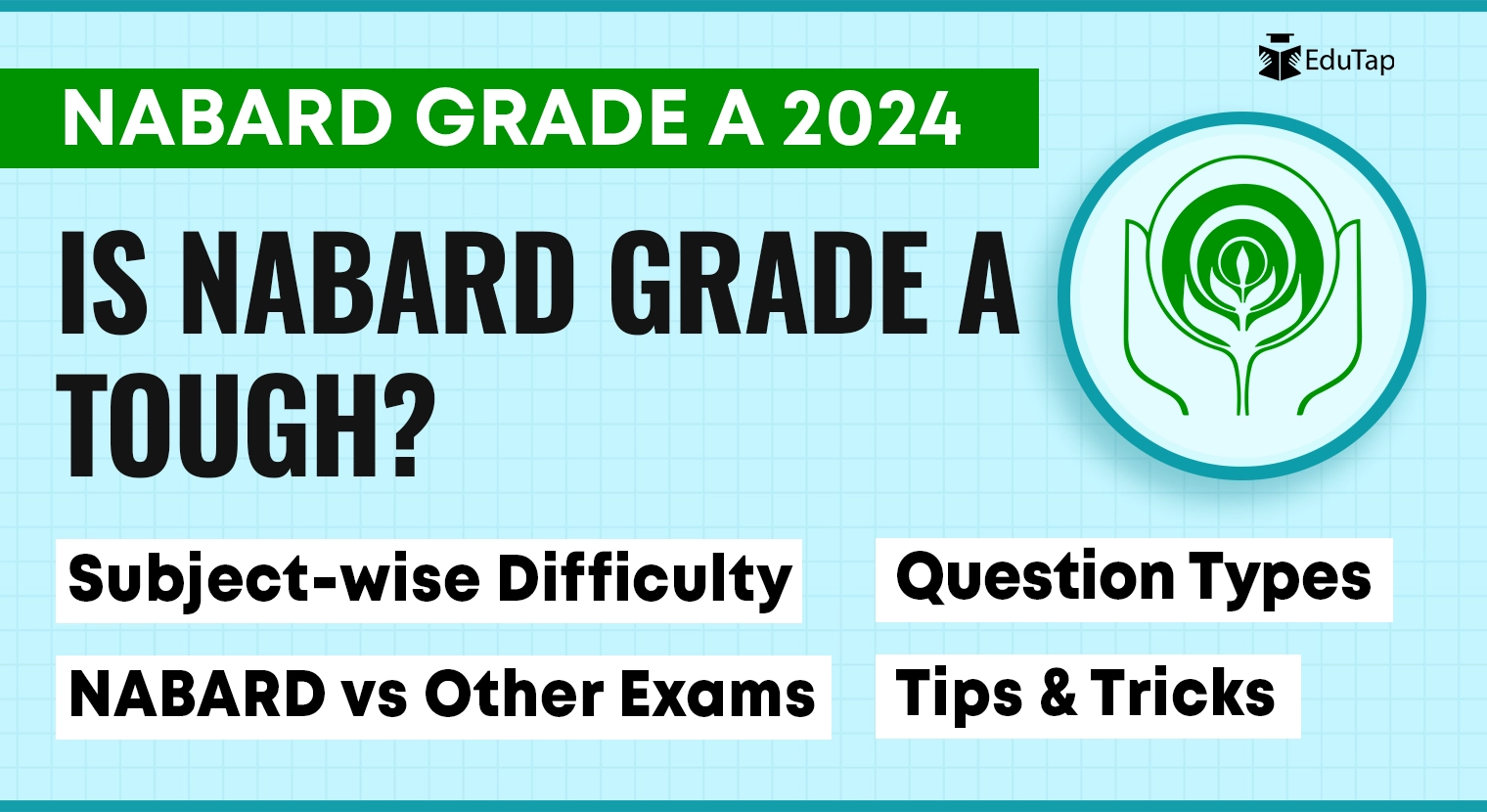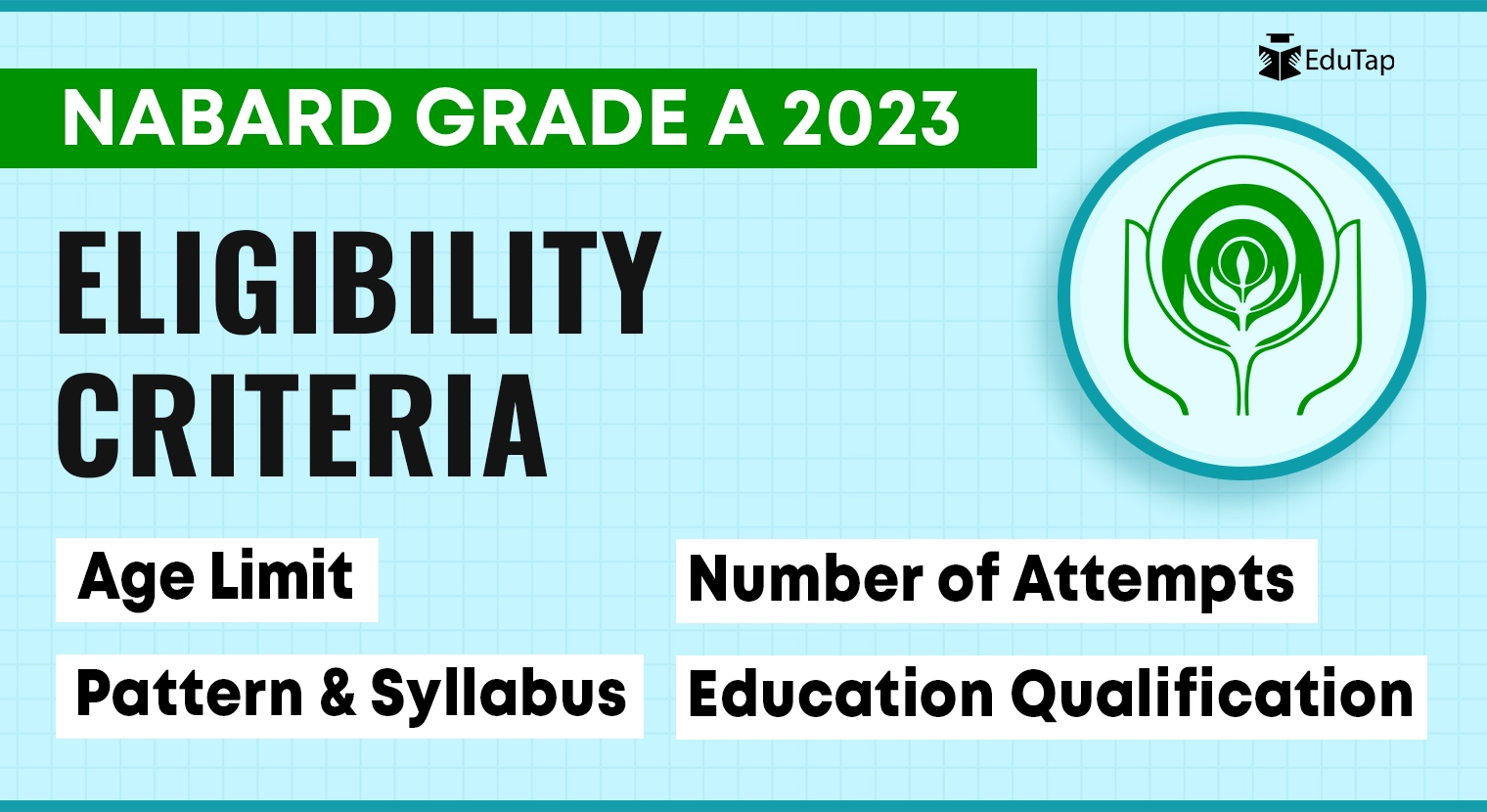Mithun successfully cleared the NABARD Grade A 2023 exam in his first attempt. With an undergraduate degree in B.Sc Horticulture, he was a UPSC aspirant for a few years before he decided to target the post of NABARD Grade A Officer.
This blog decodes Mithun’s preparation strategy and highlights how his UPSC preparation helped him tremendously during his NABARD journey.
NABARD Grade A: Plan B
Mithun’s preparation journey started with various competitive exams, including UPSC and state PCS. His dedication and hard work paid off, as he progressed through the UPSC Prelims, Mains, and Interview.
He reached the interview stage in his last attempt at UPSC, but fate had other plans. Missing the final merit list by a mere five marks left him looking for a Plan B.
Strategically assessing his options, Mithun recognized that the knowledge he had acquired during his UPSC preparation could be utilised effectively elsewhere. NABARD, with its focus on rural development and public service, emerged as a promising alternative. Aligning with his aspirations, Mithun made a preparation switch. From that point onward, he prepared for the NABARD exam, driven by a clear vision and determination.
The transition to NABARD wasn’t just about career prospects; it was about contributing at the grassroots level. Working with NABARD meant actively participating in programs that directly impact people’s lives. The organisation’s commitment to development, inclusivity, and public service resonated with Mithun, reinforcing his choice.
As he embarked on this new path, Mithun’s family stood by him. While they hadn’t pressured him toward any specific exam, they shared his disappointments and triumphs. When he missed the UPSC interview rank, their empathy was clear. Hence, in the case of NABARD, Mithun kept his parents unaware of his exam preparation until the final results were out.
In the unpredictable journey of competitive exams, moments of self-doubt and demotivation are inevitable. Mithun’s advice to fellow aspirants is to embrace the process, take breaks when needed, and remember that exams are just one part of life.
As the saying goes, “Do your duty and leave the rest to God.” With this mindset, he started his preparation, leaving the outcome in fate’s hands.
NABARD Grade A: Preparation Overview
Notification and Syllabus Assessment
- After the NABARD notification was released, Mithun swiftly shifted gears. Despite his break from UPSC, he maintained a consistent reading practice for current affairs via newspapers like The Hindu. This habit had become an integral part of his daily routine, helping him efficiently cover Current Affairs.
- Upon exploring the NABARD syllabus and reviewing the previous year’s questions, he noticed a significant similarity with UPSC. However, one section stood out: Agriculture and Rural Development (ARD). Recognizing its importance, he decided to focus on it specifically.
Strategic Preparation
- Mithun gathered study materials from various institutions, including lecture videos on platforms like YouTube. He optimised his learning by watching these videos at 2x speed, ensuring efficient coverage.
- For objective questions, he solved numerous practice questions from different sources. Taking advantage of free online mock tests, he aimed to cover all possible topics. Even if some areas were missed during the syllabus study, he knew they would likely be addressed in the objective section.
Prelims and Mains Approach
- Mithun recognized that NABARD prelims involved a mix of both factual and analytical questions. His primary focus was on solving as many objective questions as possible.
- He maintained flexibility in his study hours. Sometimes, he immersed himself for 12 to 14 hours, while other days, he studied for just a few hours. His endurance, honed during UPSC preparation, allowed him to sustain long study sessions with short breaks.
In summary, Mithun’s strategic approach, familiarity with current affairs, and targeted focus on ARD helped him navigate the challenging time frame effectively. His ability to adapt and optimise study hours played a crucial role in his success.
Phase 1 Preparation Strategy
Here’s how he approached the non-merit sections of NABARD Grade A Phase 1 exam.
Quantitative Aptitude
- Mithun recognized that in the non-merit section, the primary goal was to clear the cutoff. Scoring exceptionally high wouldn’t necessarily guarantee success; crossing the minimum cutoff was crucial.
- His strategy involved identifying frequently recurring question types. Some common topics included:
- Quadratic equations
- Missing numbers
- Mathematical rules
- Mithun focused on his strong areas within Quantitative Aptitude. He believed that if he could comfortably solve around 50% to 40% of the questions within the time limit, he would be on track to clear this section.
Reasoning
- In the reasoning section, Mithun aimed to maximise his score by targeting specific question types:
- Paragraph-based questions: These often came in sets, with three to four related questions. He honed his skills in comprehending and answering them efficiently.
- Sitting Arrangement problems: These required logical thinking and visualisation.
- Blood Relations: Focusing on these questions allowed him to derive multiple sub-questions from a single scenario.
- By strategically tackling these question types, Mithun ensured that he spent less time while achieving the target score in reasoning.
English
- For the English section, Mithun emphasised two key aspects:
- Grammar: He honed his ability to identify grammatical errors.
- Reading comprehension: Mithun practised reading passages quickly and efficiently. He aimed to answer all sub-questions related to the passage.
- His approach was to solve questions based on his strengths strategically.
He emphasised that different aspirants might have varying strong subject areas, so tailoring one’s preparation accordingly is crucial.
Computer Knowledge
- Mithun’s familiarity with computers made this section manageable. He had a basic understanding of keyboard shortcuts and other computer-related concepts.
- He referred to materials from coaching institutions like Anuj Jindal and Edutap to strengthen his understanding. These resources helped him understand the types of questions asked.
Decision Making
- Decision-making posed a challenge. Mithun took advantage of his UPSC ethics preparation to approach the subject confidently.
- His approach involved:
- Analysing situations: Like a manager, he assessed scenarios presented in the options.
- Identifying key points: Reading questions carefully and pinpointing essential details.
- Eliminating options: By applying his managerial mindset, he narrowed down his choices.
- With approximately 10 decision-making questions, Mithun aimed to answer at least five to six confidently, taking calculated risks when necessary.
In summary, Mithun’s strategic focus on relevant topics, leveraging his strengths, and applying ethical decision-making principles contributed to his success in the non-merit sections.

ESI Preparation for NABARD Grade A Exam
In this section, we delve into Mithun’s approach to preparing for the ESI section of the NABARD Grade A exam. ESI encompasses both static knowledge and current affairs related to economic and social issues. Let’s explore how he tackled this critical part of the exam.
Understanding Schemes and Recent Developments
- Scheme Knowledge: Mithun recognized that schemes play a pivotal role in the ESI section. He emphasised understanding the details of various government schemes related to both ARD and ESI. This majorly included knowing:
- The scheme’s objectives
- The relevant ministry
- Allocation of funds
- Beneficiaries
- Recent Developments: Mithun stayed updated on any changes or updates to these schemes. Schemes evolve over time, with beneficiaries being added or removed. Being aware of these developments was crucial.
Information Sources
- PIB Website: Mithun referred to the Press Information Bureau (PIB) website for accurate and official information such as government announcements, policy updates, and scheme-related news.
- Current Affairs Magazines: He also relied on reputable current affairs magazines like The Hindu, Vis, and UT. These sources provided comprehensive coverage of current events, including economic and social issues.
Budget and Economic Survey Reports
- Budget: Mithun emphasised the importance of the Union Budget. Both in prelims and mains, questions are often directly taken from the budget documents. Understanding budget allocations, priorities, and key provisions was essential.
- Economic Survey: Similarly, the Economic Survey reports were valuable. Mithun studied them meticulously, as they provided insights into the country’s economic performance, challenges, and policy recommendations.
Static vs. Analytical Knowledge
- Static Knowledge: Mithun’s UPSC background gave him an advantage in terms of static knowledge. He had already covered topics that overlapped with the ESI syllabus.
- Analytical Approach: However, NABARD’s question approach was different. It required a combination of factual knowledge and analytical thinking. Mithun focused on memorising essential facts about schemes while also understanding their implications.
In summary, Mithun’s approach involved a blend of factual knowledge, current affairs, and analytical thinking. His familiarity with schemes, budget, and economic survey reports, along with strategic preparation, contributed to his success in the ESI section.
ARD Preparation for NABARD Grade A Exam
In this section, we delve into Mithun’s approach to preparing for the Agriculture and Rural Development (ARD) section of the NABARD Grade A exam. ARD encompasses both static knowledge and current affairs related to agriculture, rural development, and related initiatives. Let’s explore how he tackled this critical part of the exam.
ARD Static Knowledge
Mithun referred to Shagun Mam’s notes from Anuj Jindal Academy for static ARD syllabus. These notes provided a solid foundation and covered essential topics related to agriculture, rural development, and relevant schemes.
ARD Current Affairs
Ministry Websites and Reports
- Mithun emphasised the importance of staying updated with current affairs related to ARD.
- He regularly visited the websites of relevant authorities, such as the Ministry of Agriculture and Rural Development and NABARD.
- These websites often release reports, initiatives, and updates related to agriculture, rural development, and financial inclusion.
- Key focus areas included:
- National Horticulture Board (NHB): Mithun kept track of NHB reports and initiatives.
- All India Financial Inclusion Survey: NABARD’s comprehensive survey provided valuable insights into financial inclusion efforts across the country.
While the probability of direct questions from current affairs in Phase 1 (Prelims) might be lower, Mithun still ensured he was well-versed in recent developments. He recommended that reports and other supplementary material could be useful for Prelims and Mains (Phase 2).
For example, in Mains, candidates have the opportunity to incorporate Current Affairs data and insights from these schemes and reports into their descriptive answer writing.
In summary, Mithun’s approach to ARD involved a combination of static knowledge, current affairs, and strategic utilisation of reports. While static knowledge formed the foundation, staying updated with recent developments allowed him to tackle both prelims and mains effectively.
Phase 2: Descriptive English Strategy
Essay Writing
- Topic Selection: Mithun strategically chose an essay topic where he could provide substantial content. The prompt was along the lines of ‘Agriculture and Technology Should Complement Each Other’. This topic aligned with the syllabus and allowed him to showcase his knowledge.
- Analytical Answer: What set his essay apart was the use of real-world examples. He referenced reports and recommendations from experts like the Ashok Dal Committee on doubling farmers’ income. By discussing how technology implementation could enhance agricultural productivity, he provided a well-rounded perspective.
- Balancing Positives and Challenges: Mithun didn’t just highlight the benefits of technology in agriculture. He also discussed the challenges in implementing these technologies. This balanced approach demonstrated depth of understanding.
- Structured Approach: Mithun structured his essay logically, breaking it down into sections like “From Farm to Plate.” He covered various aspects, including soil testing, marketing, mechanisation, and drone technology.
- Way Forward: His essay included a forward-looking perspective. By suggesting ways to overcome challenges, he showcased critical insightful thinking.
Letter Writing
- Standard Format: Mithun followed the standard format for letter writing, including the senders’ address, the receivers’ address, and the content/body of the letter.
- Precision and Grammar: He emphasised reducing grammatical errors and being specific. A good command of grammar was essential.
Precis Writing
- Identifying Key Words: In precis writing, Mithun identified the keywords from the given passage. He then rephrased the content in his own words, maintaining clarity and conciseness. He mentioned that it is important to use your own words and not just rewrite what is given.
- Understanding the Passage: Precis writing required grasping the overall context of the passage. By focusing on essential points, he created a concise summary.

Phase 2: Answer Writing Experience
The NABARD Grade A Phase 2 exam involves descriptive answers, which require typing skills, unlike drawing diagrams or flowcharts as in UPSC.
Let’s explore how Mithun managed this transition from UPSC to NABARD and adapted to the exam environment.
- Challenges: Unlike UPSC, where diagrams and flowcharts are permissible, NABARD requires typed answers. This posed a challenge, especially considering the word limit.
- Digital Notes: Mithun’s habit of creating digital notes worked in his favour. Most of his study material was already in typed form, which eased the transition.
- Word Limit: Mithun aimed to meet at least 80% to 90% of the word limit for each answer. While perfection wasn’t always possible, he ensured substantial coverage.
- Typing Speed: Initially, his typing speed was around 300 to 400 words per minute. However, consistent practice improved it over time.
- Keyboard Interface: Exam centres often have different keyboards, some of which may not function optimally. Mithun prepared for the worst-case scenario.
- Time Management: He allocated specific time for each question. For instance, if the allotted time was 15 minutes, he aimed to complete the answer in 10 to 9 minutes. This allowed room for any unexpected issues.
- Exam-Hall Noise: While typing in an exam hall, there might be noise from other candidates’ keyboards. Mithun emphasised that during the exam, he tuned out distractions. The question and answer became his sole focus.
However, after completing Phase 2, Mithun felt a mix of confidence and uncertainty. His descriptive answers were reasonably well-structured, but varying answers from different coaching institutions left him unsure. In Phase 2, his tentative score came out to be between 32 and 36 out of 50, which was satisfactory for him.
As he later moved towards the final Interview, he focused on understanding NABARD’s specific demands.
He studied interview transcripts of previous year’s toppers who had successfully made it to NABARD.
The interview questions primarily revolved around rural development and banking services. Mithun correlated his hobbies, such as beekeeping, with NABARD’s syllabus. Overall, his Phase 1 and 2 preparation provided a strong foundation for the Interview, and he integrated this knowledge effectively during the interview process.
Interview Preparation
Mithun’s approach was strategic, considering NABARD’s core focus on rural development and banking services. Here’s how he prepared and how his Phase 1 and 2 knowledge helped improve his interview performance.
Understanding NABARD
Mithun recognized that the interview process required a deep understanding of NABARD’s mission and priorities.
- NABARD’s primary goal is the development of rural areas. This includes improving livelihoods, promoting sustainable agriculture, and enhancing rural infrastructure.
- Additionally, NABARD plays a crucial role in providing banking services to rural communities. Understanding these aspects was essential.
Transcripts of Previous Toppers
- Mithun studied the interview transcripts of previous year’s toppers who had successfully cleared the NABARD Grade A exam. These insights helped him understand the types of questions likely to be asked.
- He noticed that the majority of questions revolved around the candidate’s inclination toward rural development and their understanding of banking services.
Detailed Application (DA)
Mithun diligently prepared his Detailed Application (DA) form. He focused on including and preparing specific aspects:
- He correlated his place of birth, state, and agricultural practices with NABARD’s mission.
- Mithun highlighted his knowledge of drone technology and e-technology, emphasising their relevance to rural development.
- Even his hobbies, such as beekeeping, aligned with NABARD’s focus on agriculture and rural livelihoods.
You can listen to Mithun’s preparation journey in his own words in the following video.
Message for Aspirants
Concluding his interview with EduTap, Mithun shared the following points as advice for future aspirants based on his experience.
- Importance of Mocks
- Mocks help you understand the specific demands of the exam. They simulate the real test environment and boost your confidence.
- Solving more and more mocks enhances your problem-solving skills and prepares you for the final exam.
- Phase 1 + 2 Preparation
- Focus on what aligns with the exam syllabus. Filter out unnecessary information.
- For the Detailed Application (DA) form, correlate your background, state, and hobbies with NABARD’s mission.
- Interview Preparation
- Learn from their experiences and understand the types of questions likely to be asked.
- Align your answers with NABARD’s priorities—rural development and banking services.
- Leverage Quality Resources
- EduTap provided Mithun with concise and relevant study material that aligned with the exam trends.
- Additionally, comprehensive feedback from Edutap’s mock interview panel boosted Mithun’s confidence during the actual interview.
In conclusion, aspirants aiming for the NABARD Grade A exam should focus on understanding the exam pattern, syllabus, and trends. Cover each syllabus topic thoroughly, ensuring you have detailed notes. Regularly attempt mock tests to simulate the real exam environment and improve problem-solving skills. For the Detailed Application (DA) form, correlate your personal information with NABARD’s mission.
Remember, it is important to tailor your preparation to NABARD’s specific demands and build a preparation strategy based on your strengths and weaknesses.
